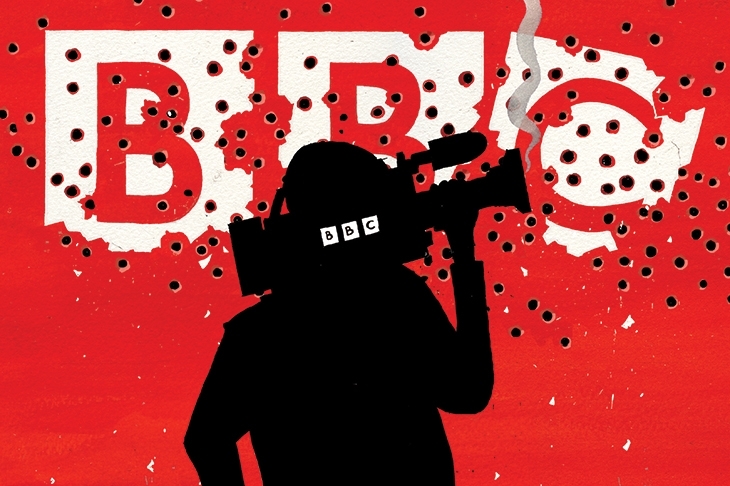In these chill winter days it’s good to know that at least one old lady is warmly wrapped up. The announcement that the BBC licence fee will rise in line with inflation is another modest, but comforting, layer of financial insulation wrapped around Auntie’s well-padded frame.
The new cost will be £159, up by about £1.50; so nothing to get excited about perhaps. But each time the licence fee is raised it focuses attention on the funding privileges that the Corporation enjoys and fuels the debate about whether those privileges should continue.
The BBC, in its defence, makes what at first glance seems a very sound ‘value for money’ argument. The Corporation points out that the licence fee works out at 43p a day, so for something less than three quid a week the audience is offered a massive range of entertainment, news and serious programming across radio, television and the internet.
The BBC was seen as partisan by Leavers and that has left a residue of mistrust
Competitor outfits are much more expensive in comparison; it has been calculated that buying piecemeal services matching the BBC package would cost about £450 a year. What is more, the BBC can claim that 91 per cent of the population uses its services and that at any one moment five million souls will be consuming BBC output. The BBC is ubiquitous.
But it is worth remembering how it has achieved this ubiquity. It stems from nearly a century’s worth of protected funding, during the first part of which the BBC had a monopoly. This enabled, decade by decade, the BBC to grow into a mighty institution centred at the very heart of British life; and there was a golden era when the Corporation, while often teased, was as near ‘loved by all’ as a public institution can decently hope to be.
But there was a worm in the bud, and in recent years there has been a growing army of the disaffected who do not see the BBC reflecting them or their values. If the BBC was still held dear in the affections of a majority there would be no clamour for ‘reform’ and the licence fee increase could be passed off as good value. But, unhappily for the BBC, that is not where we are.
Part of the criticism stems from the perennial complaint that the BBC wastes money on things the audience does not value – overpaid stars are an affront to many, while high executive salaries sullied the organisation’s good reputation. The ‘squeeze’ on the BBC’s finances, which so alarms its defenders, dates from a period when, under director general Mark Thompson, the BBC showed how public service broadcasting became a vehicle for a self-serving, public-sector, boss class. Subsequently governments showed themselves less willing to indulge the broadcaster.
However the main complaint of the BBC’s critics is not about the money it costs but about a perceived bias in its outlook. For many of these critics, it was the years of debate about the European issue which brought their discontents into focus; the BBC was seen as partisan by Leavers and that has left a residue of mistrust. For them it boils down to this: why should we pay for a service that sails under the banner of ‘impartiality’ when we feel it opposes our beliefs and values? It is these people whom the BBC must propitiate because the licence fee privilege obliges the Corporation, by Royal Charter, to be even-handed and fair. Many have come to the conclusion that it is not.
But those who are now agitating for reform should understand what they are up against. There is a large constituency in the country which is very well-served by the BBC and which couldn’t be happier with its output. For Remain-inclined social liberals what is not to like? They see and hear their own views and prejudices reaffirmed and reinforced on a daily basis by an organisation that has a well-polished veneer of authoritativeness.
This coalition comprises some of the most influential groups in the country; the legal, political, administrative, arts and media establishment are all committed allies of the BBC. Forcing the BBC to change its ideological world-view will be the most vicious kulturkampf imaginable because what is under challenge will be the bedrock foundation of the current political dispensation.
Already the Corporation’s defenders are sending up the rallying cry: ‘Defend the BBC’. Let it be absolutely clear: what they are ‘defending’ is the status quo; they do not want the BBC reformed because ‘reform’ can only mean losing ground.
When your starting position is that you already have everything you want, any change will bring with it loss. But it cannot be stated too often that the right answer to the BBC’s current travails is for the Corporation to be true to its foundational principles. ‘Diversity’ – about which the BBC talks so much – must come to include diversity of political opinion among its own staff. That is what real reform demands.






Comments